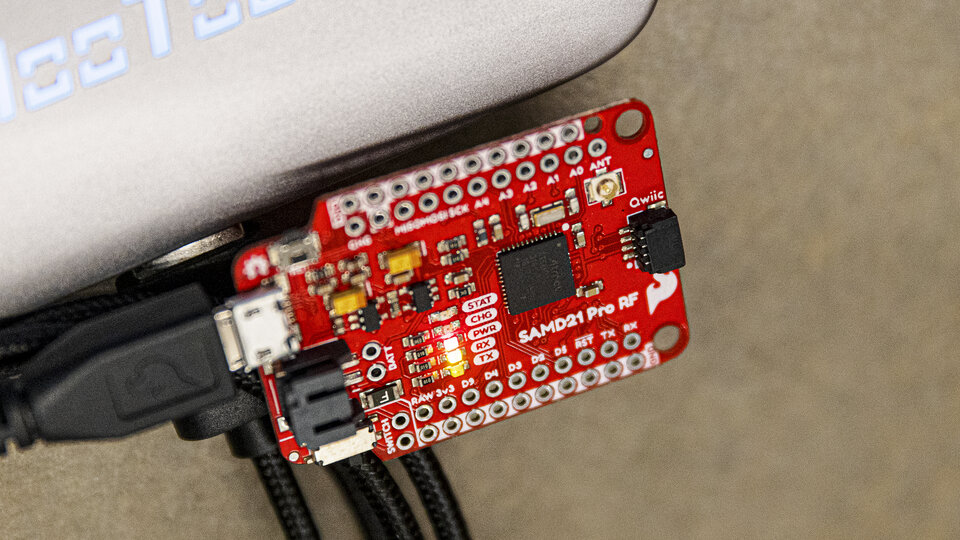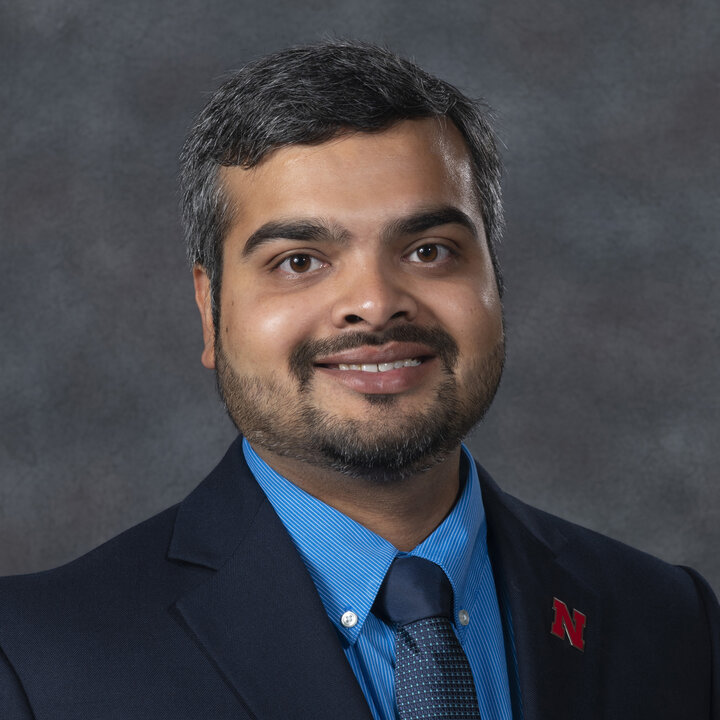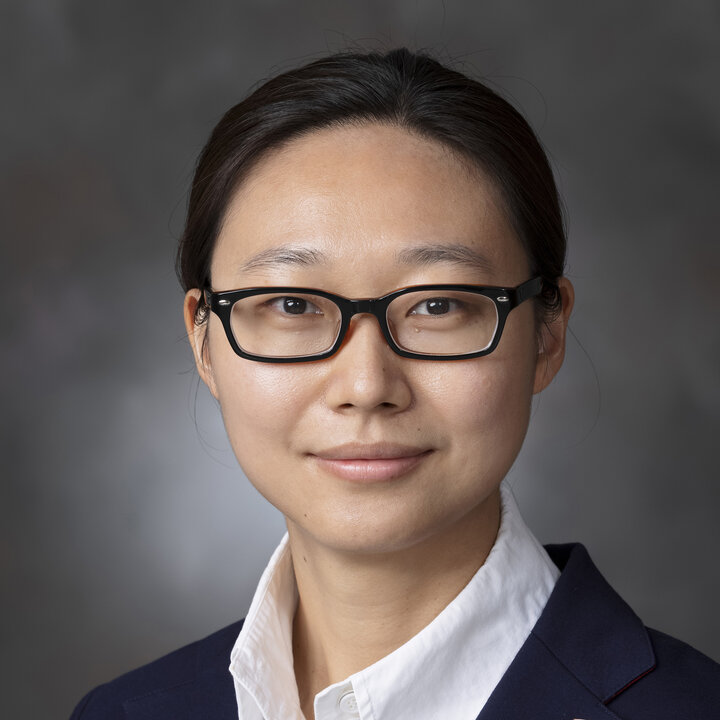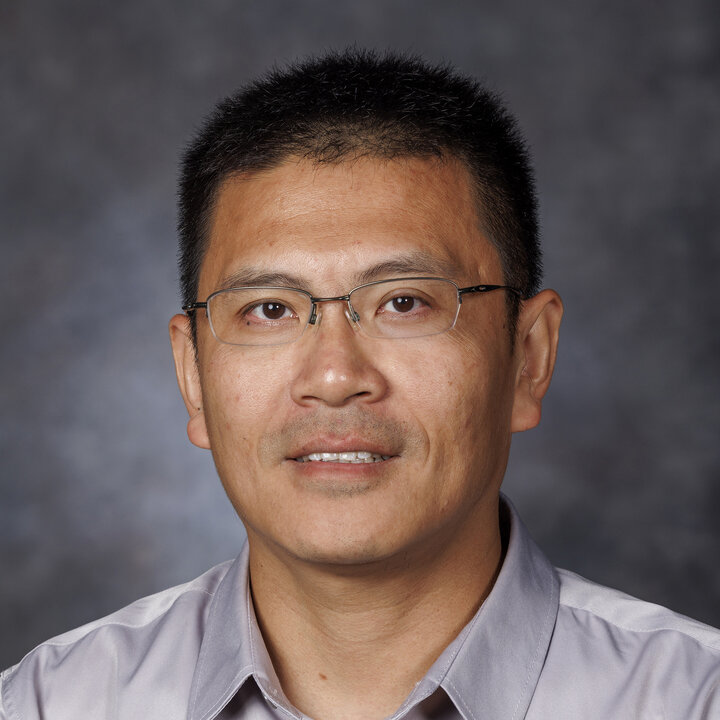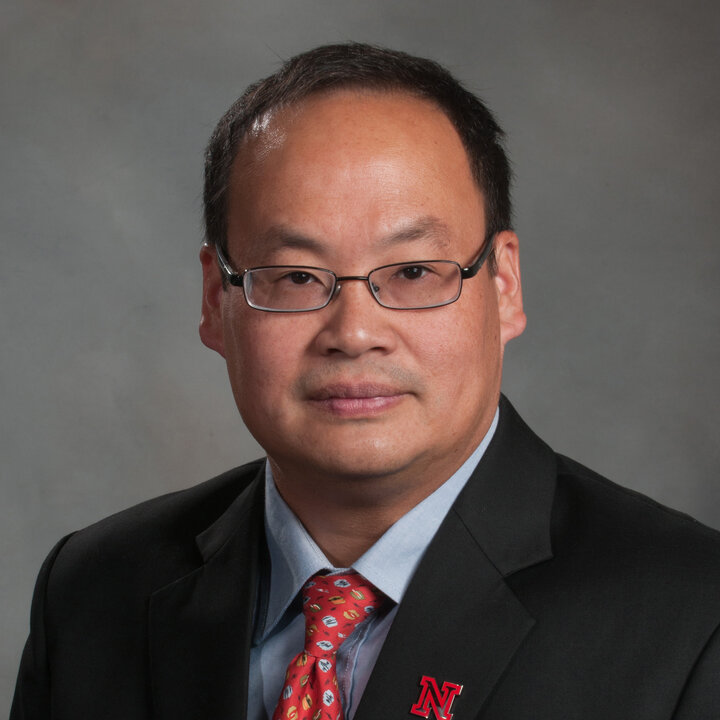The Internet of Things (IoT) Graduate Certificate Program will equip students and professionals with both the fundamental knowledge and hands-on experience required to excel in the technology field, as well as many other industries now utilizing transformative and impactful IoT technology.
This program allows highly qualified individuals who have earned a bachelor's degree in a computing-related field to extend their education with a graduate certificate in IoT. Students will complete four courses, or 12 credit hours, including one required course and three elective courses. Students can also select an optional track to focus on a specific area of IoT studies.
Key areas of focus in this program include embedded system design, connectivity, security, data streaming, artificial intelligence, machine learning, and automated decision-making.
What You'll Learn
In this graduate certificate program, you will:
- Cover core IoT concepts
- Be introduced to emerging IoT technologies that bridge multiple disciplines
- Gain insights into the convergence of IoT with 5G and future 6G wireless technologies
- Study the growing role of AI in IoT devices for edge computing
Admission Requirements
The steps for admission of an applicant into the Graduate Certificate in the Internet of Things program will follow the admission requirements and procedures established by the Office of Graduate Studies. The IoT Advisory Committee will review all applications and make admission decisions. The Advisory Committee will also identify a faculty advisor for each admitted student. This advisor will be responsible for assisting the student in developing a plan of study and will monitor student’s progress, in collaboration with the Advisory Committee and School of Computing Graduate Chair.
Prerequisites/Deficiency Procedures
In addition to Office of Graduate Studies admission requirements, all students must have:
- A B.S. in engineering, computer science, or a related field
- A GPA of at least 3.0
- A resume/CV
Specific prerequisites:
- Fundamental knowledge of computer science and engineering, including computer programming, algorithms, and exposure to operating systems and software development.
Additional details about graduate certificate requirements can be found in the university's Graduate Catalog.
Coursework Requirements
The 12 credit certificate program is focused on the core courses that are offered in the School of Computing. The courses are offered frequently, providing students ample opportunity to complete the certificate in a timely fashion.
Here are the offering cycles of these courses:
Every Fall: CSCE 836, CSCE 838, CSCE 858, CSCE 865
Every Spring: CSCE 863, CSCE 878, CSCE 892
Once every two years: CSCE 839, CSCE 875, CSCE 829
To earn the IoT Graduate Certificate, students must complete one required course, CSCE 838 — Internet of Things, and three elective courses. The elective courses can be selected by personal preference, or according to one of three IoT tracks in IoT Communication Fundamentals, IoT System Design, or IoT Applications. Selecting an IoT track is optional and not required to earn the certificate; any of the elective courses can be selected and will count toward the certificate.
For additional details and descriptions of our courses, see the bottom of this webpage.
Extending Toward a Master's Degree
The Graduate Certificate in the Internet of Things is designed to allow students to extend it towards a master's degree in Computer Science (CS Option A and B) or master's degree in Computer Science (Computer Engineering Specialization) (CE Option A and B) degree as well. Below in Table 2 is a list of options for both CS Options A and B and CE Options A and B degree should they want to pursue a master's degree after successfully completing the Graduate Certificate in the Internet of Things. The extension depends on the number of extra courses required, depending on whether it's CS Options A or B or CE Options A or B master's program. In the case of CE Option A, the students will be required to take more credits to cover the thesis requirements. The flexibility of the program allows the students to have options in pursuing further degrees to prepare them for the workforce. Entry into a master’s program will require a separate application.
| CS Option A | CS Option B | CE Option A | CE Option B | |
| Extra credits required for M.S. | Require 18 credits. Courses from Theory (6 credits), App (6 credits), Systems (6 credits) can be covered in the Graduate Certificate in the Internet of Things + Thesis (6–9 credits) + independent study (3–6 credits) | Require 18 credits. Courses from Theory (6 credits), App (6 credits), Systems (6 credits) can be covered in the Graduate Certificate in the Internet of Things + (6–9 credits) graduate courses + independent study (3–6 credits) | Require 18 credits. Mandatory CSCE 830, CSCE 834, CSCE 862, Theory course (3 credits), 900 level course that can includes Thesis (6 credits) | Require 18 credits. Mandatory CSCE 830, CSCE 834, CSCE 862, Theory course (3 credits), 900 level course (6 credits) |
| Total | 30 | 30 | 30 | 30 |
Completion of Requirements
Once admitted to the graduate certificate program, students will complete the required coursework. Upon completion, students will submit the Application for Graduation in MyRed. Admission to the certificate program must be completed prior to the start of the semester in which the student will graduate. The graduate certificate will be mailed to the student’s permanent address listed in MyRed. Graduate certificates are not conferred at commencement.
For more details on completing your graduate certificate requirements, visit the Graduate Studies website.
Frequently Asked Questions
What is a graduate certificate?
A graduate certificate is a set of credit-bearing graduate courses in a specific subject area. It is designed for students who have already earned a bachelor's degree and want to expand their academic or professional qualifications.
How many credit hours are required for the IoT graduate certificate?
IoT graduate certificate requires 12 credit hours of graduate-level coursework completed after earning a bachelor's degree.
Can I earn more than one graduate certificate?
Yes, students can pursue multiple certificates. However, only 3 credit hours may be shared between any two certificates, and each certificate must include at least 12 hours of non-shared coursework. No course can be counted toward more than two certificates.
What are the grade requirements for the IoT certificate courses?
Courses must be B or higher. If courses from the certificate are later applied toward a graduate degree, they must also meet the minimum grade requirements of that degree program, which may be higher.
Do I need to be enrolled in a master’s or doctoral program to pursue a graduate certificate?
No, admission to a graduate certificate program is independent of enrollment in a graduate degree program. You may pursue a certificate with or without being enrolled in a master’s or doctoral program.
Can I work on a graduate certificate and a graduate degree at the same time?
Yes, you can pursue both simultaneously, but it is not required.
Can courses from my graduate certificate be applied toward a graduate degree?
Yes, if the courses were taken at the University of Nebraska, they may be applied to a graduate degree, provided they meet all grade and degree requirements.
I am in the Accelerated M.S. program. Can the dual-degree credits be applied toward the graduate certificate?
No, IoT graduate certificate requires 12 credit hours of graduate-level coursework completed after earning a bachelor's degree. Since the dual-degree credits are earned before earning the bachelor’s degree, they do not count. However, MS program graduate courses completed after earning the bachelor’s degree may also count toward the graduate certificate.
Can I use courses from a previously completed degree or certificate for a new certificate?
No, courses, which were used to fulfill a previously awarded graduate degree or certificate, cannot be counted again toward a new graduate certificate.
Can I use coursework from another university toward a University of Nebraska graduate certificate?
No, only courses completed at the University of Nebraska are eligible for inclusion in a graduate certificate.
For more information about graduate certificate requirements and policies from the Office of Graduate Studies, review the graduate catalog.
How to Apply
Application Requirements
Our application process follows the standard university requirements for all graduate programs:
- Application for Admission with $50 non-refundable application fee.
- Transcripts (unofficial): Uploaded as part of application form.
- If International: Uploads must include all college- or university-level transcripts or mark sheets (records of courses and marks earned), with certificates, diplomas, and degrees plus certified English translations.
- After admission: Official documents are required from all students who are admitted and enroll. Photocopies of certified records are not acceptable. International students enrolled in other U.S. institutions may have certified copies of all foreign records sent directly to the Office of Graduate Studies by their current school’s registrar office.
- If applicant’s native language is not English, verification of English proficiency is required.
- When sending TOEFL scores, our institution code is 6877 and a department code is not needed.
- If applicant is not a U.S. citizen and expects an F or J visa: financial information.
- Applicants must also fulfill any additional requirements the school specifies at the time of application, including uploading a resume/CV.
Admission Application Deadlines
Rolling deadline.
For more application information, visit the Graduate Studies website.
Application Submission
Certificate Courses
The 12-credit certificate program is focused on the core courses that are offered in the School of Computing. The courses are offered frequently, providing students ample opportunity to complete the certificate in a timely fashion.
To earn the IoT Graduate Certificate, students must complete one required course, CSCE 838 — Internet of Things, and three elective courses. The elective courses can be selected by personal preference, or according to one of three IoT tracks in IoT Communication Fundamentals, IoT System Design, or IoT Applications. Selecting an IoT track is optional and not required to earn the certificate; any of the elective courses can be selected and will count toward the certificate.
For more information about courses, review the university's Graduate Catalog.
Required Course
CSCE 838 – Internet of Things
Theoretical and practical insight into the Internet of Things (IoT). Basics of IoT, including devices and sensors, connectivity, cloud processing and storage, analytics and machine learning, security, business models as well as advanced topics such as localization, synchronization, connected vehicles, and applications of IoT. Includes a group project that provides hands-on interaction with IoT.
IoT Communication Fundamentals Track
CSCE 829 — Information Theory
Deals with the foundations of information theory, as well as the more practical aspects of information coding. Information measures are first introduced, and then applied to the analysis of the theoretical performance achievable in data compression and propagation over noisy channels.
CSCE 863 — Data and Network Security
Concepts and principles of data and network security. Focuses on practical aspects and application of crypto systems in security protocols for networks such as the Internet. Topics include: applications of cryptography and cryptosystems for digital signatures, authentication, network security protocols for wired and wireless networks, cyberattacks and countermeasures, and security in modern computing platforms.
CSCE 865 — Wireless Communication Networks
Discussion of theoretical and practical insight to wireless communications and wireless networking, current practices, and future trends. Wireless network architectures, mobility management, radio propagation, modulation, power control, antennas, channel access, pricing, and standards.
CSCE 892 — Digital Communication Systems
Introduction to the elements and components that are part of a digital communication systems. Various forms of coding, discrete memory channel, decoder models and detection techniques, mutual information and determining channel capacity. Various forms of digital modulation, signals, and systems used in wireless communication as well as futuristic applications, such as DNA storage.
IoT System Design Track
CSCE 836 – Advanced Embedded Systems
Embedded hardware design techniques; transceiver design and low-power communication techniques; sensors and distributed sampling techniques; embedded software design and embedded operating systems; driver development; embedded debugging techniques;hardware and software architectures of embedded systems; and design, development, and implementation of embedded applications.
CSCE 875 – Multiagent Systems
Distributed problem solving and planning, search algorithms for agents, distributed rational decision making, learning multiagent systems, computational organization theory, formal methods in Distributed Artificial Intelligence, multiagent negotiations, emergent behaviors (such as ants and swarms), and Robocup technologies and real-time coalition formation.
CSCE 878 – Introduction to Machine Learning
Introduction to the fundamentals and current trends in machine learning. Possible applications for game playing, text categorization, speech recognition, automatic system control, date mining, computational biology, and robotics. Theoretical and empirical analyses of decision trees, artificial neural networks, Bayesian classifiers, genetic algorithms, instance-based classifiers and reinforcement learning.
IoT Applications Track
CSCE 839 – Robotics: Algorithms and Applications
Fundamental theory and algorithms for real world robot systems. Design and build a robot platform and implement algorithms in C++ or other high level languages. Topics include: open and closed loop control, reactive control, localization, navigation, path planning, obstacle avoidance, dynamics, kinematics, manipulation and grasping, sensing, robot vision processing, and data fusion.
CSCE 858 — Molecular and Nanoscale Communication
Overview of nanoscale communication options. Focus on bio-inspired communication through molecule exchange and biochemical reactions. Different techniques to realize nanomachines will be surveyed in the course, with particular attention to the tools provided by synthetic biology for the programming of biological cooperative systems.
CSCE 838
Internet of Things
REQUIRED COURSE
Theoretical and practical insight into the Internet of Things (IoT). Basics of IoT, including devices and sensors, connectivity, cloud processing and storage, analytics and machine learning, security, business models as well as advanced topics such as localization, synchronization, connected vehicles, and applications of IoT. Includes a group project that provides hands-on interaction with IoT.
CSCE 829
Information Theory
IoT Communication Fundamentals
Deals with the foundations of information theory, as well as the more practical aspects of information coding. Information measures are first introduced, and then applied to the analysis of the theoretical performance achievable in data compression and propagation over noisy channels.
CSCE 863
Data and Network Security
IoT Communication Fundamentals
Concepts and principles of data and network security. Focuses on practical aspects and application of crypto systems in security protocols for networks such as the Internet. Topics include: applications of cryptography and cryptosystems for digital signatures, authentication, network security protocols for wired and wireless networks, cyberattacks and countermeasures, and security in modern computing platforms.
CSCE 865
Wireless Communication Networks
IoT Communication Fundamentals
Discussion of theoretical and practical insight to wireless communications and wireless networking, current practices, and future trends. Wireless network architectures, mobility management, radio propagation, modulation, power control, antennas, channel access, pricing, and standards.
CSCE 892
Digital Communication Systems
IoT Communication Fundamentals
Introduction to the elements and components that are part of a digital communication systems. Various forms of coding, discrete memory channel, decoder models and detection techniques, mutual information and determining channel capacity. Various forms of digital modulation, signals, and systems used in wireless communication as well as futuristic applications, such as DNA storage.
CSCE 836
Advanced Embedded Systems
IoT System Design
Embedded hardware design techniques; transceiver design and low-power communication techniques; sensors and distributed sampling techniques; embedded software design and embedded operating systems; driver development; embedded debugging techniques;hardware and software architectures of embedded systems; and design, development, and implementation of embedded applications.
CSCE 875
Multiagent Systems
IoT System Design
Distributed problem solving and planning, search algorithms for agents, distributed rational decision making, learning multiagent systems, computational organization theory, formal methods in Distributed Artificial Intelligence, multiagent negotiations, emergent behaviors (such as ants and swarms), and Robocup technologies and real-time coalition formation.
CSCE 878
Introduction to Machine Learning
IoT System Design
Introduction to the fundamentals and current trends in machine learning. Possible applications for game playing, text categorization, speech recognition, automatic system control, date mining, computational biology, and robotics. Theoretical and empirical analyses of decision trees, artificial neural networks, Bayesian classifiers, genetic algorithms, instance-based classifiers and reinforcement learning.
CSCE 839
Robotics: Algorithms and Applications
IoT Applications
Fundamental theory and algorithms for real world robot systems. Design and build a robot platform and implement algorithms in C++ or other high level languages. Topics include: open and closed loop control, reactive control, localization, navigation, path planning, obstacle avoidance, dynamics, kinematics, manipulation and grasping, sensing, robot vision processing, and data fusion.
CSCE 858
Molecular and Nanoscale Communication
IoT Applications
Overview of nanoscale communication options. Focus on bio-inspired communication through molecule exchange and biochemical reactions. Different techniques to realize nanomachines will be surveyed in the course, with particular attention to the tools provided by synthetic biology for the programming of biological cooperative systems.
